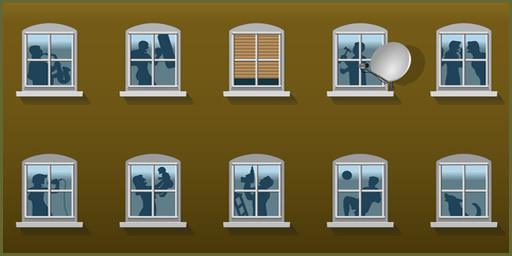Earlier this spring, the Pacific Legal Foundation (PLF) and Rental Housing Association of Washington (RHAWA) announced that they have filed a lawsuit in King County Superior Court against the City of Seattle. They are protesting a fair chance housing law that prevents landlords from making rental restrictions based upon past criminal records.

The suit was filed on behalf of three landlords. These landlord challenges with the fair chance housing law alleges it is creating a violation against the constitutional rights of landlords to free speech and due process. The landlords believe they have a right to seek information about applicants’ pasts and use it to enhance their decision-making process.
Seattle Housing Affordability and Livability Agenda Law Challenged
Seattle City Attorney spokesperson Dan Nolte said their office is reviewing the complaint. However, he said they believed that the ordinance in question is constitutional and they plan to defend the law.
The Fair Chance Housing law went into effect in February of 2018. It prevents screening potential tenants by landlords based upon past criminal convictions. Landlords are also prevented from factoring in records that were vacated, sealed or expunged. Juvenile records are also off limits.
The fair chance housing law originated as a recommendation from the Seattle Housing Affordability and Livability Agenda. In the past, landlords were allowed to screen tenants for criminal convictions. The new version is broader, exempting landlords that share a bathroom or kitchen with tenants or are renting an accessory unit. Landlords managing four units or less are also exempt, and the fair chance housing law doesn’t apply to adult sex offenders.
RHAWA Recommends “Ban the Box,” HUD Enforcement and Expanded Public Services
The Rental Housing Association of Washington (RHAWA) suggests that “ban the box” legislation – removing the checkbox that requires applicants to disclose their past prior to a background check – as well as enforcement of HUD guidelines, additional supportive public housing and expanded public services could help as well.
RHAWA has advocated for a local Certificate of Restoration of Opportunity program allowing those with criminal convictions to appear before a panel to receive a certificate they could take and present to a landlord.
Persons with criminal records lament that in a sense they are forced to live in the past, continually reminded of the mistakes they made even if they have reformed their ways.
Finding a Balance Between Landlord and Tenant Rights
The Seattle Housing Affordability and Livability Agenda advocated for the fair chance housing law in an effort to give persons with a criminal record a fair chance at housing. Without at least having a chance, it is difficult for them to transcend their pasts and get a fresh start. However, landlords should have the right to use tenant screening to select the best renters available.
Seattle Tenant Screening Laws
The RHAWA group has also sued the City of Seattle regarding a law to put a cap on move-in fees for tenants. They successfully sued and overturned a law insisting landlords rent out available properties to the very first qualified applicant. However, the city of Seattle intends to appeal and try to reinstate this law.
Source: https://www.seattle.gov/civilrights/civil-rights/fair-housing/fair-chance-housing-law
Disclaimer Statement: All information presented is for information purposes only and is not intended to provide professional or legal advice regarding actions to take in any situation.

